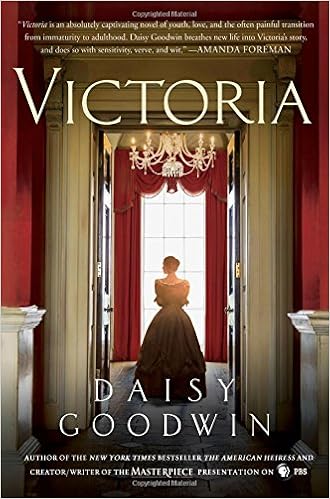
Victoria The Queen: An Intimate Biography of the Woman who Ruled an Empire- Julia Baird
Random House
Release Date: November 22, 2016
Rating (out of 5):
📚📚📚📚
Synopsis: When Victoria was born, in 1819, the world was a very different place. Revolution would threaten many of Europe’s monarchies in the coming decades. In Britain, a generation of royals had indulged their whims at the public’s expense, and republican sentiment was growing. The Industrial Revolution was transforming the landscape, and the British Empire was commanding ever larger tracts of the globe. In a world where women were often powerless, during a century roiling with change, Victoria went on to rule the most powerful country on earth with a decisive hand.
Fifth in line to the throne at the time of her birth, Victoria was an ordinary woman thrust into an extraordinary role. As a girl, she defied her mother’s meddling and an adviser’s bullying, forging an iron will of her own. As a teenage queen, she eagerly grasped the crown and relished the freedom it brought her. At twenty, she fell passionately in love with Prince Albert of Saxe-Coburg and Gotha, eventually giving birth to nine children. She loved sex and delighted in power. She was outspoken with her ministers, overstepping conventional boundaries and asserting her opinions. After the death of her adored Albert, she began a controversial, intimate relationship with her servant John Brown. She survived eight assassination attempts over the course of her lifetime. And as science, technology, and democracy were dramatically reshaping the world, Victoria was a symbol of steadfastness and security—queen of a quarter of the world’s population at the height of the British Empire’s reach.
Drawing on sources that include fresh revelations about Victoria’s relationship with John Brown, Julia Baird brings vividly to life the fascinating story of a woman who struggled with so many of the things we do today: balancing work and family, raising children, navigating marital strife, losing parents, combating anxiety and self-doubt, finding an identity, searching for meaning.
__________________________
Through Baird's research, including newly available papers on John Brown (Victoria's servant and close confidante after Albert's death) and from Dr. Reid (Victoria's physician in her final years), we see Victoria in new ways. Baird shows us a complicated and complex woman. A woman both incredibly strong and incredibly in need of emotional connections. A woman who ruled an empire but believed that women could not rule. Victoria disagreed with the developing women's suffrage movements, but after her death was held up by suffragists as an example of women's strength.
Perhaps one of the biggest take aways from Victoria is not actually about Victoria but about what we know about history itself. Throughout Victoria Baird mentions known occasions of editing or destroying information- whether on Victoria, Albert, John Brown, or others- in an attempt to create an image rather than preserve impartial history. Her daughter Beatrice is known to have not only heavily edited Victoria's personal diaries, but to have burned the originals after doing so in what Baird (rightly, I think) calls "one of the greatest acts of historical censorship of the century". Beatrice wrote to her great-nephew King George VI saying that letters between her parents were so intimate (apparently relating to personal arguments), and Victoria's ransom jottings about daily life, could have no value "historical or biographical value whatever". Beatrice focused on protecting her parents' memory as she wanted them to be seen, and was in the unique position of being able to permanently remove much that conflicted with what she wanted that memory to be. Baird does an excellent job of reminding those who have never really thought about it that the agendas and prejudices of the historian can greatly alter a biography- whether on purpose on not. Meanwhile, every history lover reading Victoria will mourn for the letters and diaries that we we never read and what light they might have shed on both people and the world at that time in general.
Readers who felt Victoria had no "modern" appeal or connection will hopefully be surprised to find how relevant Baird has made Victoria through today's eyes. Although sometimes slightly repetitive and suffering from the problem I have with many biographies of dramatically forecasting the future (ending of chapters with "if only they knew then what was to happen" approach that seems common, but I find very annoying every time), Victoria is a well researched and captivating book that shines new light on one of the longest reigning and influential English monarchs ever.
I received an ARC of this book from NetGalley in exchange for an honest review.



![Baron (The Knickerbocker Club) by [Shupe, Joanna]](https://images-na.ssl-images-amazon.com/images/I/51fDNawOW5L.jpg)